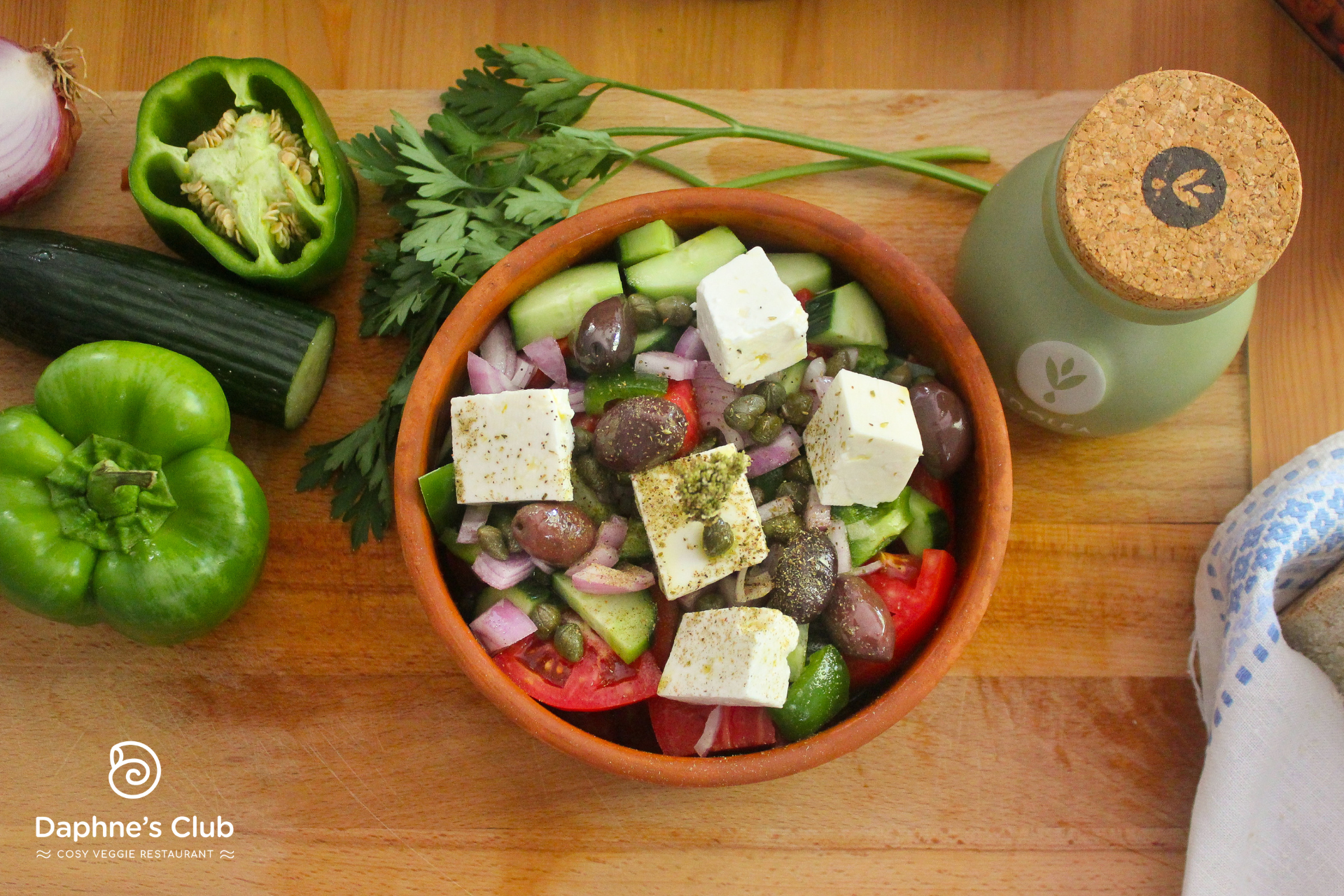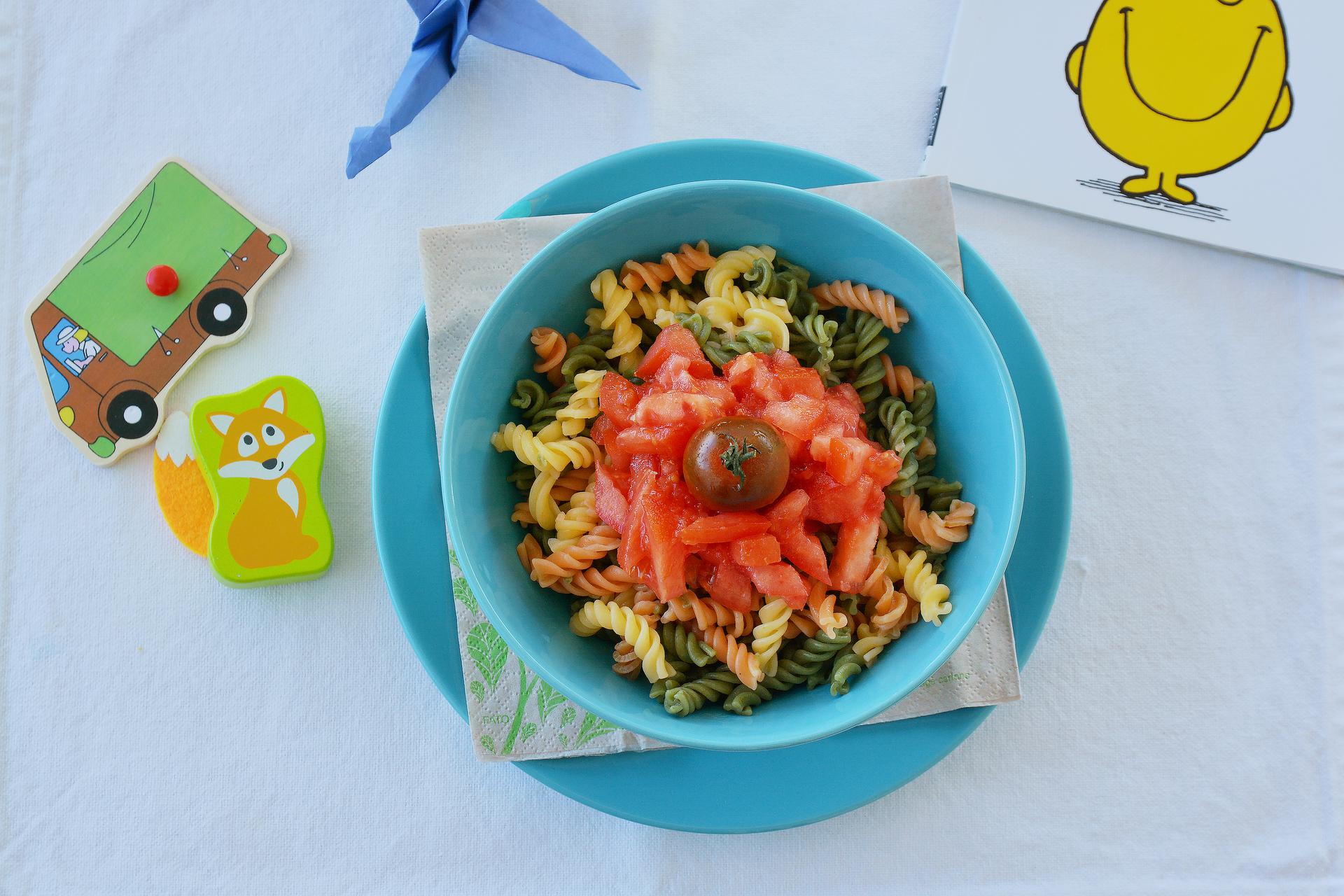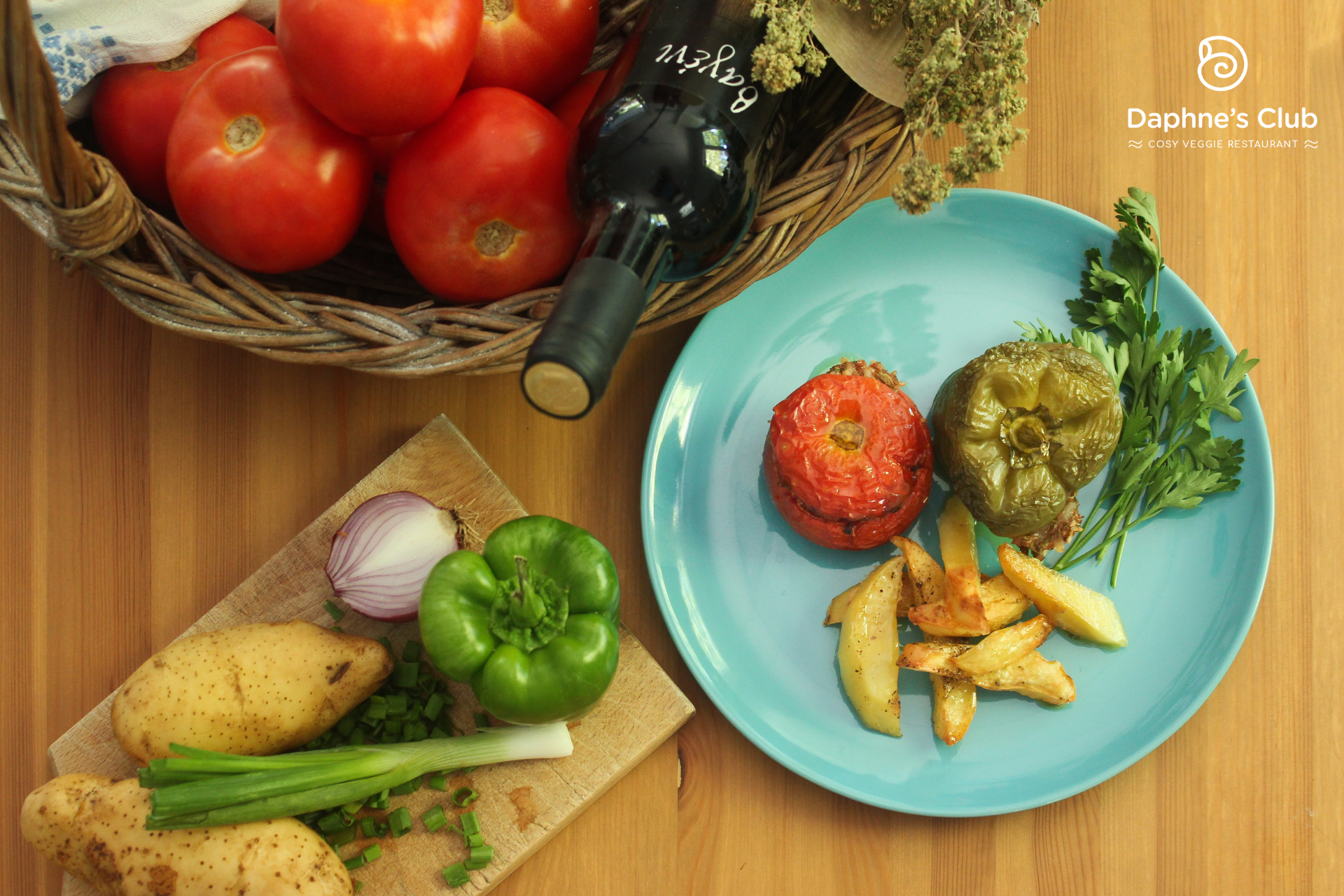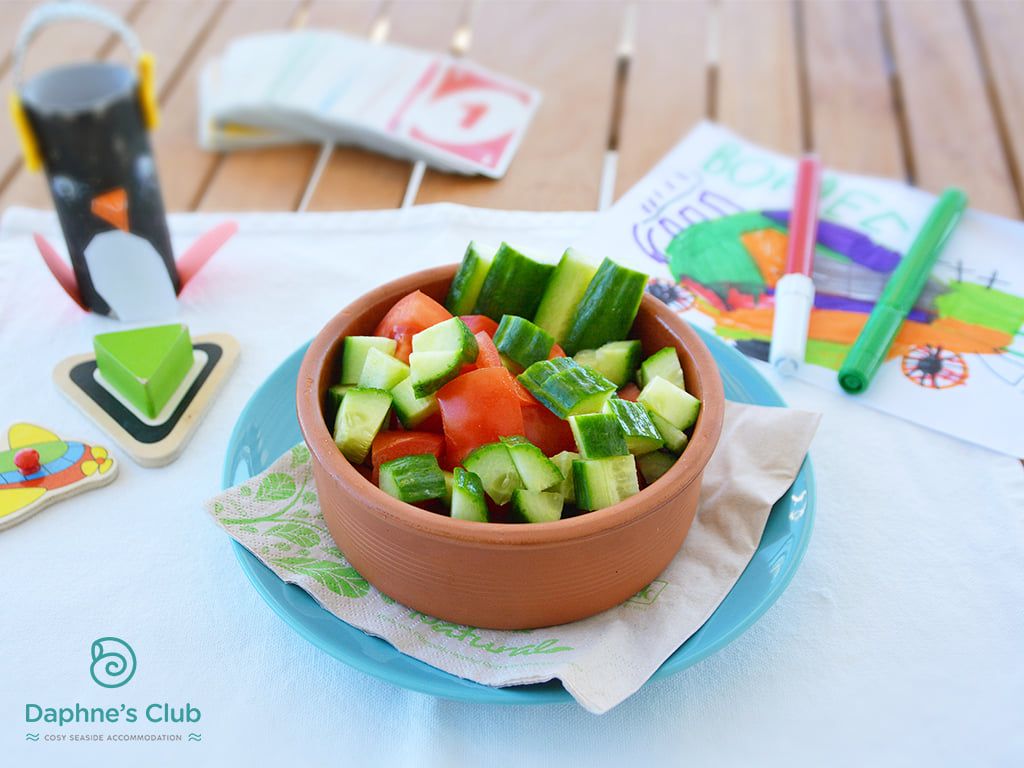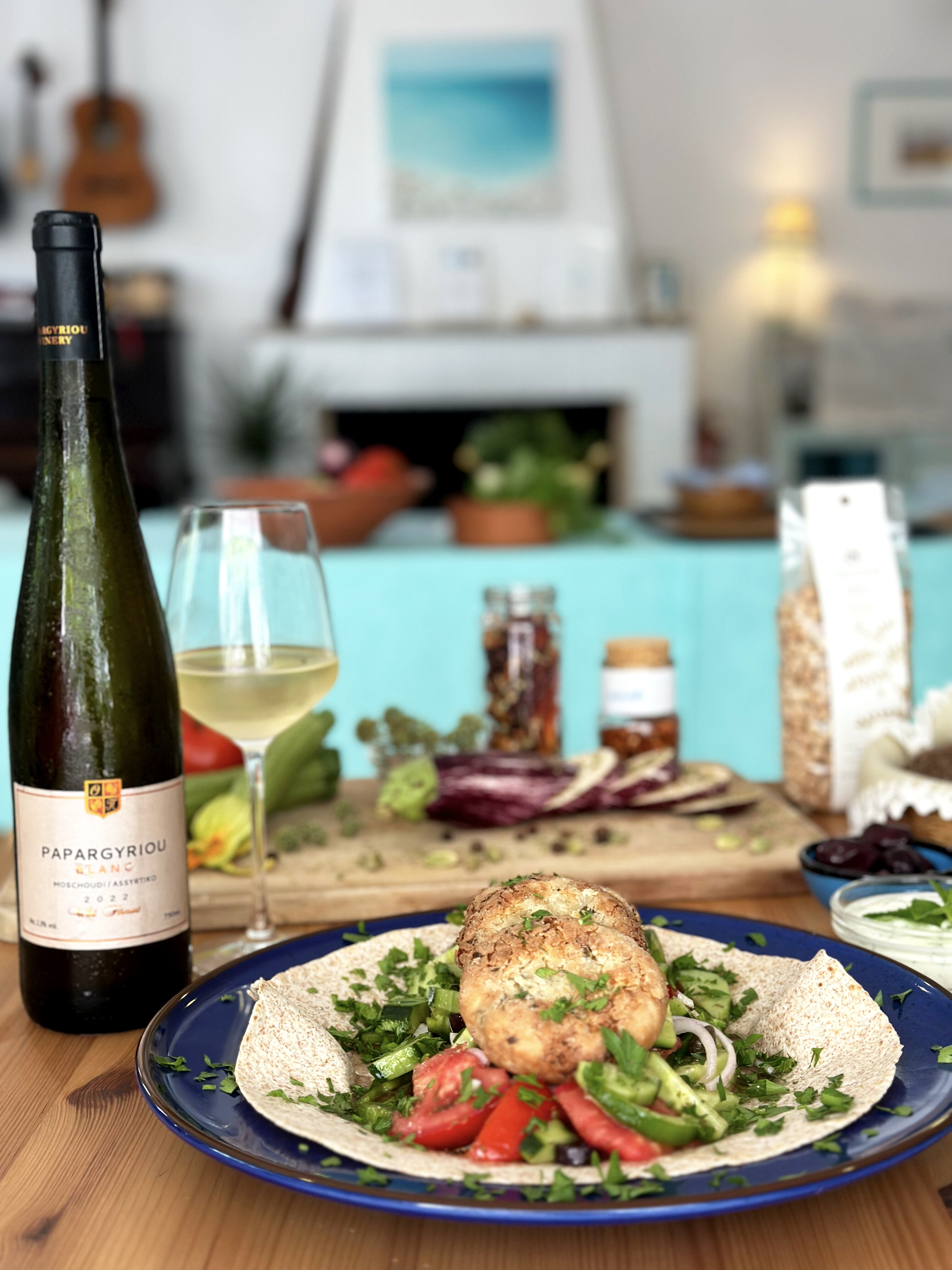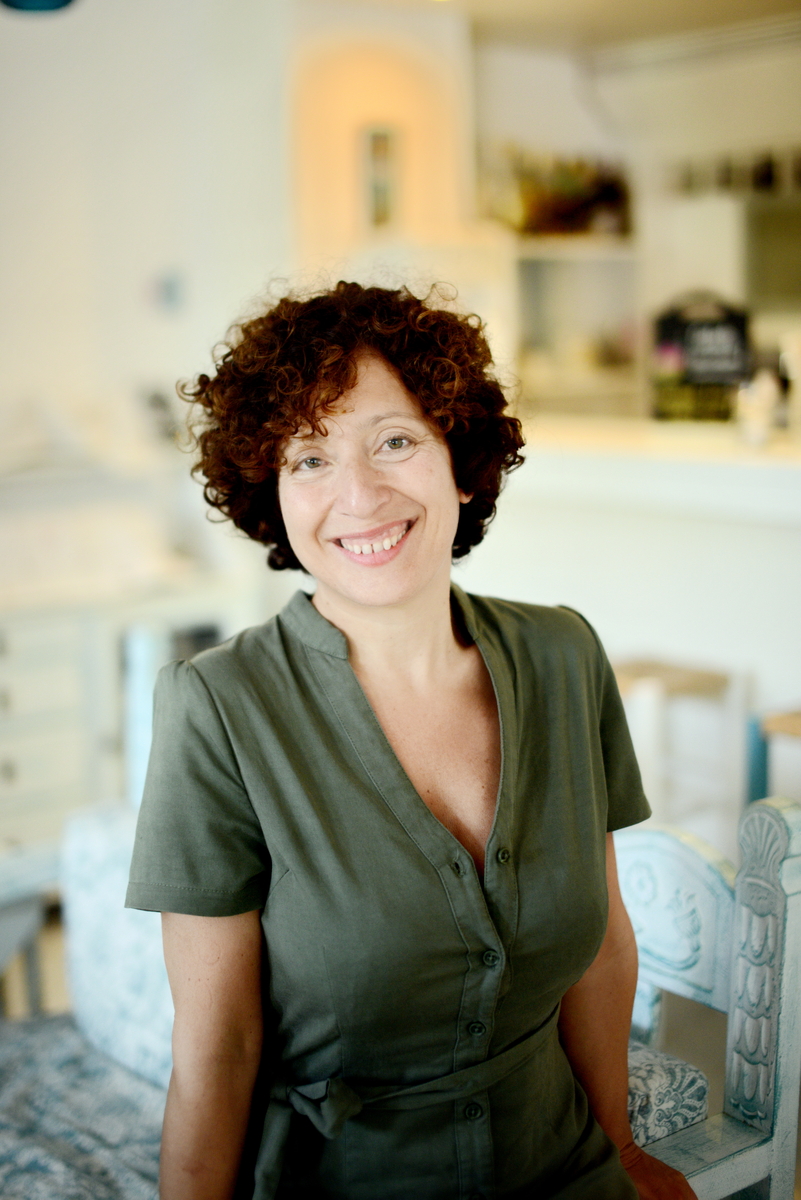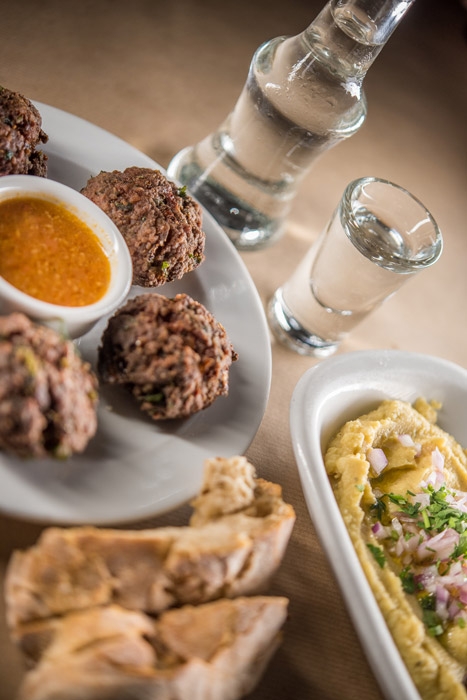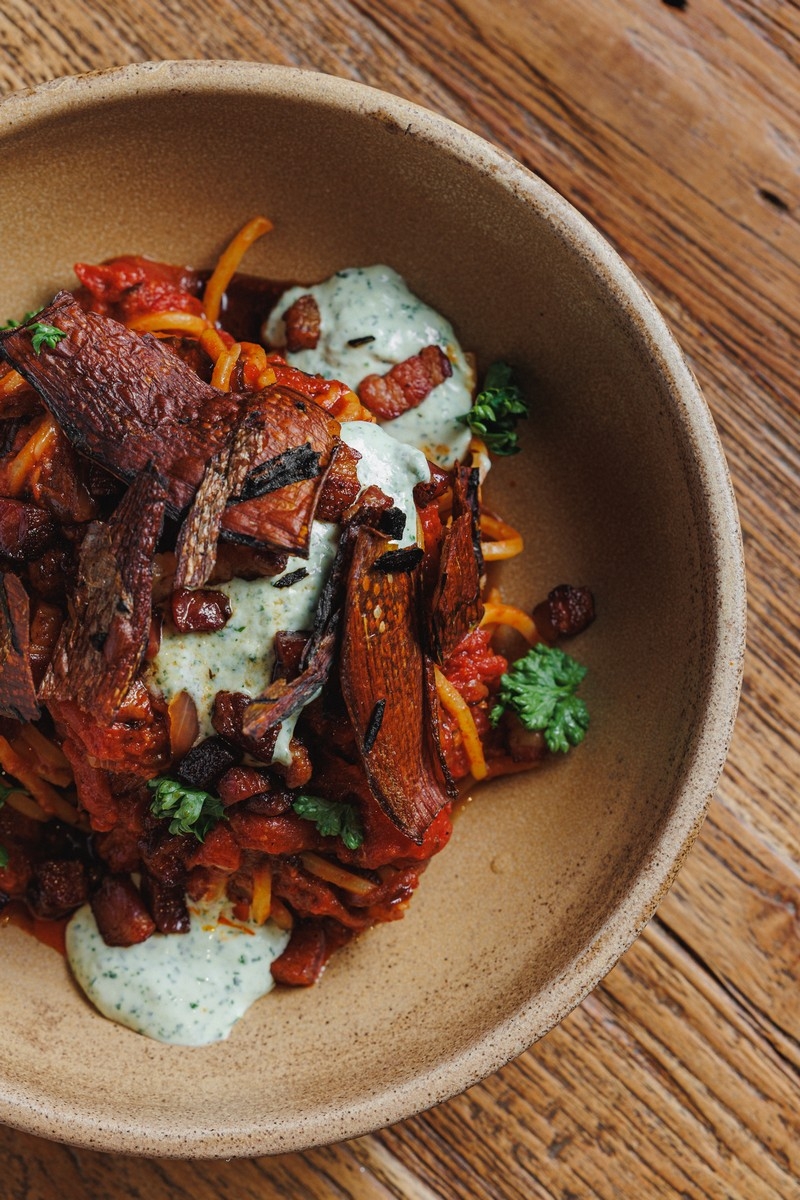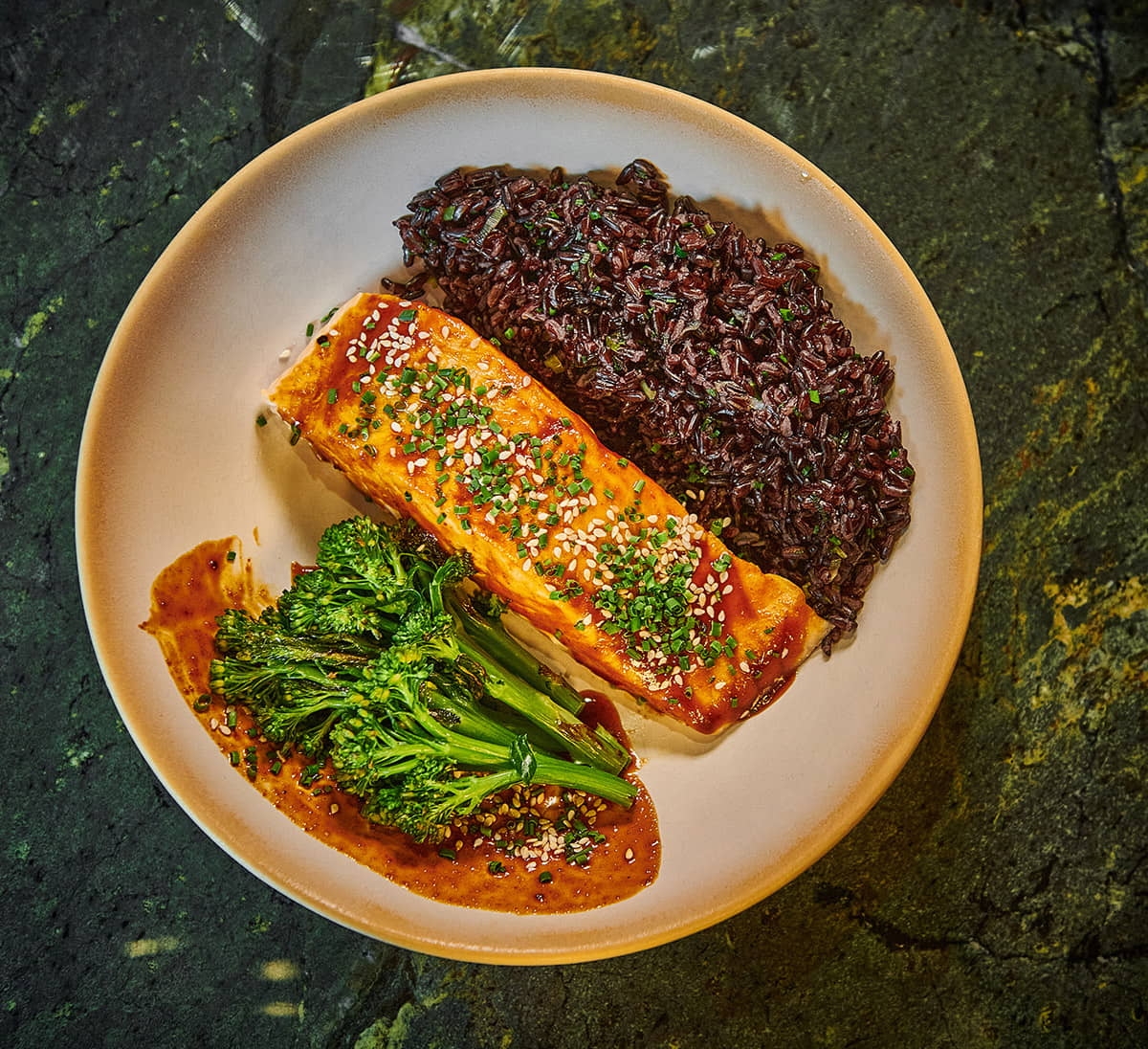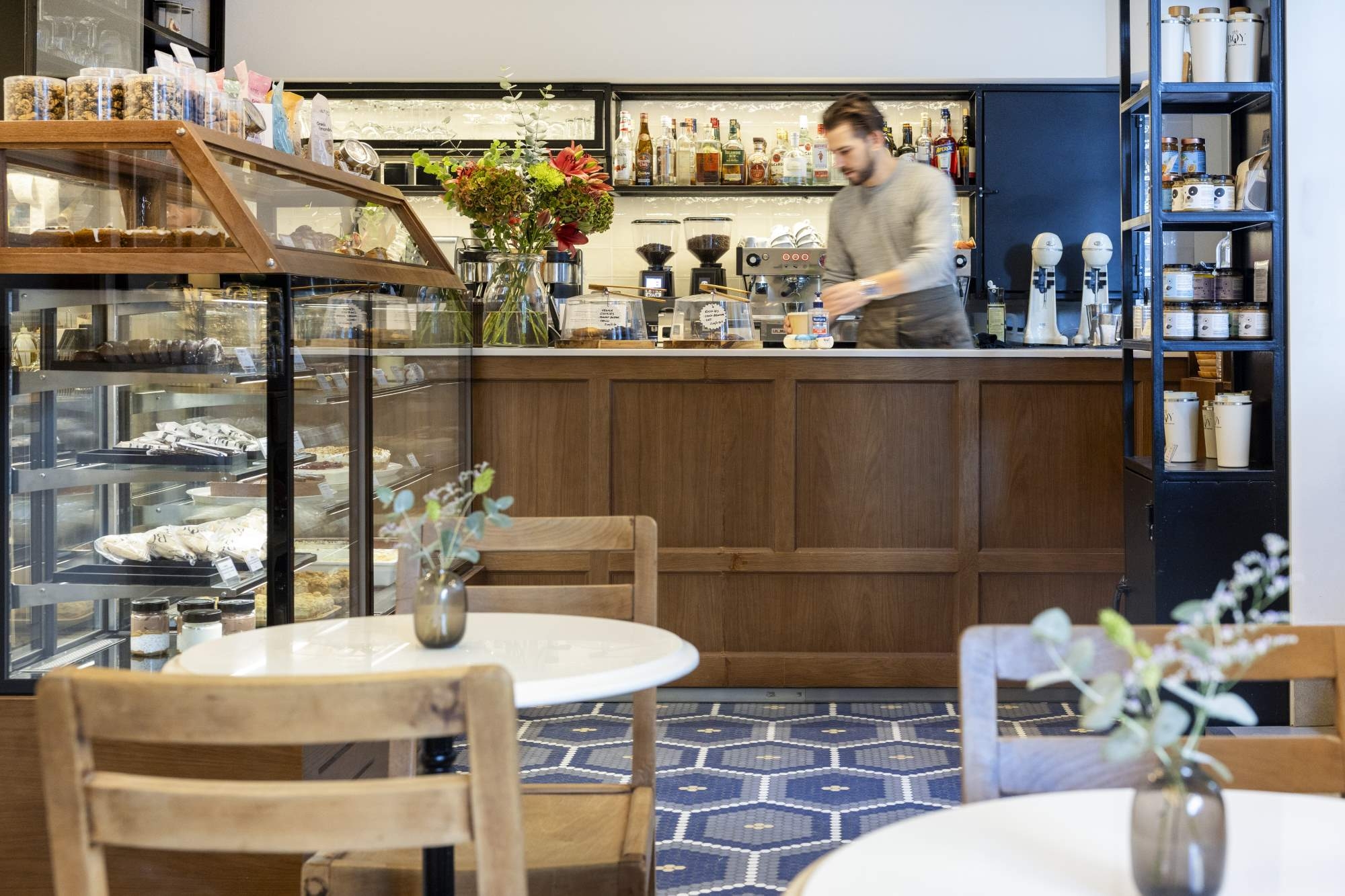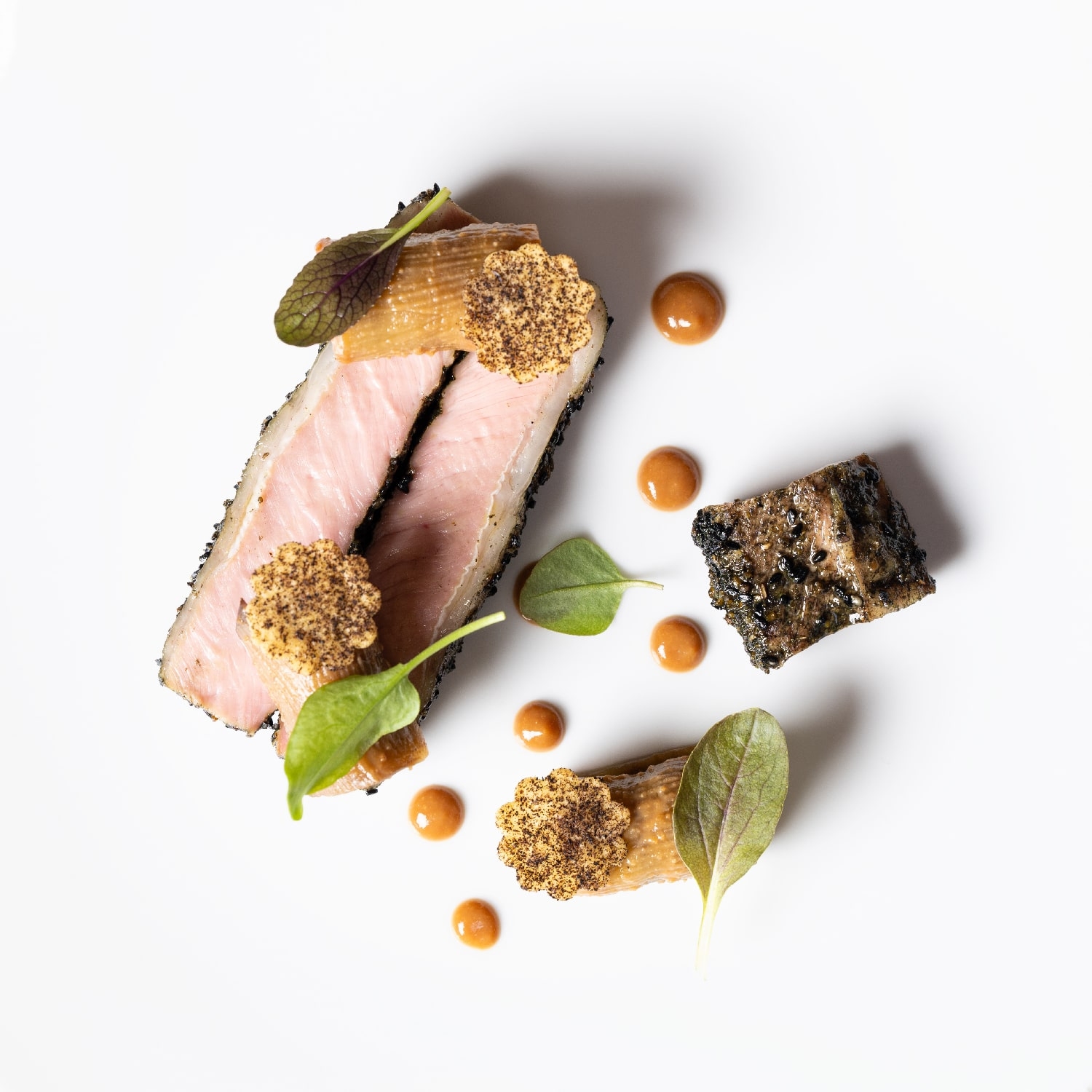Daphne's Club Vegan / Vegetarian restaurant is not just a restaurant. It's a reflection of the passion and the vision of Daphne Mavrommati for a healthier, kinder world. Her story is a testament to the power of following one’s heart and making a difference, one delicious meal at a time.
Can you share the inspiration behind starting a vegan and vegetarian restaurant within your hotel?
Starting a vegan/vegetarian restaurant within our hotel came very naturally, as the opening of the restaurant coincided with a corresponding life choice: to avoid causing harm to animals, to the environment and ultimately to humans too, and to be part of the solution for a more just and more humane world. But some additional context is needed: I would classify our hotel as a mission-based endeavor, the mission being to prove that a privately-run enterprise can be at the same time small-scale, ecological and ethical while remaining financially viable.
In a nutshell, to illustrate that sustainability in its wider sense is not antithetical to financial viability. So, when taking over from my parents almost 20 years ago my first step was to turn our breakfast completely organic and the second step was ecological certification.
At the same time I was working on our relations with staff, providers, colleagues, the wider community and of course with the state, to ensure that my multilevel vision beamed outwards towards everyone and everything we were involved with.
What challenges did you face in establishing a plant-based restaurant in a hotel setting, and how did you overcome them?
The main obstacle for the success of this endeavor is perceptions. Veganism/vegetarianism is still regarded as a fringe “ideology” in this part of Greece, despite the wide dissemination of the ill-effects of the excessive consumption of meat and dairy on animal life, the planet and human health.
This creates a lot of resistance to the idea itself of a meatless dish, even if there are many vegetarian and vegan dishes in traditional Greek cuisine. So, I would say that 3 years into our almost-utopian venture we are still struggling to make the restaurant financially viable.
On the other hand I see a rising trend towards plant-based eating and remain optimistic that we will reach a positive tipping point at the end of this season. In the meantime, we remain steadfastly committed to this project!
How do you source your ingredients, and what importance do you place on using local and organic products?
The vegetables we use are all sourced locally, either from local farmers or from small fruit & vegetable stores.
For the remaining ingredients (both conventional and plant-based milk and “dairy” products, flour, etc) we make a point of buying from Greek producers, situated as near as possible to our hotel. Sourcing organic has unfortunately proven a much more difficult task for a number of reasons, the main being unavailability in our area and transport logistics when ordering from other parts of Greece.
Can you describe the response from hotel guests and the local community to the vegan and vegetarian options?
For most of our guests, at least for those who have not chosen our hotel because it offers vegan meals and who had not noticed before the contents of our menu, the first response is usually incredulousness! I would say though that most, after the first surprise has passed, react in a positive way.
And I am myself surprised when many admit that they have already cut down on meat, even if they have not yet fully transitioned to a plant-based diet. And there are a few who tested our food and “converted”!
How do you ensure that your restaurant provides a unique dining experience that aligns with the overall ambiance and values of your hotel?
I view and experience this small business as a whole, which includes not just the infrastructure and the services, but also the people working here, the guests staying here, the surrounding environment and the era and society within which it is embedded.
Therefore, I constantly strive to create a holistic setting, which aligns both our strategies and our functioning with our core values and is ultimately experienced by our guests as authentic coziness.
I think that this can be achieved and ensured by a firm commitment to a combination of the human scale, the ethical and the authentic.
What strategies do you use to educate and attract non-vegan or vegetarian guests to try your plant-based offerings?
We attract conventionally, using social media and hoping for word of mouth!
We educate by example. Our food is derived from traditional Greek recipes, such as stuffed vegetables, moussaka, pastitsio, gigantes, as well as favorite holiday dishes, such as burgers, pizzas, falafel and pastas, all which are cooked here at the hotel from scratch, with real love and care, using genuinely good quality, wholly-traceable ingredients.
Through good photography, nice texts and sustained exposure we hope not just to attract, but also to educate our actual and potential guests and the wider public to the fact that a plant-based diet is not just rational but also super tasty!
What future plans do you have for expanding or evolving the vegan and vegetarian restaurant within your hotel?
This season we have opened the restaurant to non-guests, with prior reservation.
This was a big step, but a necessary one, on the one hand to ensure our financial viability and on the other hand because it fills a gap in our region’s offering: we are the first and only exclusively vegetarian/vegan restaurant in the whole of Corinthia! So for now consolidation is our main strategy.
When this is achieved, I think that we will go for more extroversion, by offering cooking classes on a more regular basis, online recipes in written and in video format, tastings and trips to local producers.
(Τhank you Daphne!)

